Distracted Poker
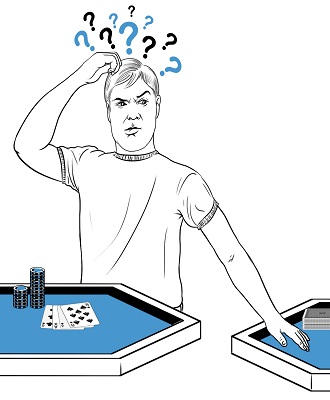
While most of you would probably scoff at the idea of playing poker while drunk, many of you are playing in a way that is just as bad: a completely distracted mental game of poker.
Never in poker has it been so easy to be distracted, especially as an online player. You can be distracted by table chat, a phone call, the web, videos, a text message, email, another game, Skype, social media and the list goes on. This problem is one that is simply not being addressed in the latest videos on poker strategy. And, what’s most disturbing is that so many players are oblivious to the cost of their distracted poker game.
A lot of new research that highlights the negative effect of general distraction in our lives has recently come out. Most notably is the impact of using a smartphone while driving. The National Highway & Transportation Administration in the U.S. has studies that show you’re 23% more likely to have an accident when distracted by a smartphone. This is the same increase in accident rate after drinking four beers before driving. Distractions make you dangerous in life, and while there is no hard research to back it up, it is fair to assume the consequences in poker are severe.
You may believe that watching a poker video while playing can be helpful. You may not think distractions affect your poker skills much, but neither did the thousands of people who got in car accidents. Had they understood the real cost of distracted driving, their phone would be out of arms reach. If any of the following happen to you, there is no denying the cost of being distracted is having on your poker game:
Forms of Distractions in Poker
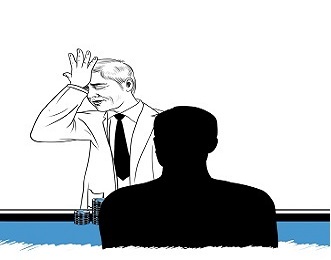
- Getting lost in a hand, not knowing how you got there, or the previous action
- Failing to notice key information about your opponents
- Putting too much emphasis on trivial pieces of information
- Having to check previous hand histories during a hand to remember the previous actions of an opponent
- Being confused as to why you lost or won the previous hand
- Misreading your hand
- Confusing players on one table with players on another table
- Running out of time on a table when you didn’t have any major decisions on previous tables
Hopefully you’ll never drive while distracted (or at least never again),so why are you risking your bankroll or poker career? In a poker world where almost everyone is distracted, there is a real edge to gain by players who are willing to focus on how to improve their poker skills.
Why Focus?
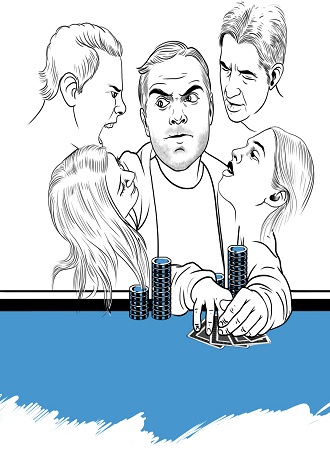
The secret to playing the mental game of poker at a profitable level is focus. Focus is your tool for gathering the data you need to make decisions.But when you play poker and check Facebook for example, your mind gets filled with irrelevant data. This creates a phenomenon that researchers call “attentional residue”, where you remain distracted after the distraction is gone. Even if you’ve closed out of Facebook, you’ll still be thinking about the things you saw for some time. Plus, since the mind has a limited capacity, key information about poker must compete for space in your mind with a funny meme or pictures your friend posted about his trip.
For some of you, eliminating distractions while you play or study may happen easily now that you’ve learned how dangerous they are to your game. What makes a good poker player is being able to put away your smartphone, close out Skype, telling your family and friends you’re unavailable, and closing web browsers. Accomplish all that, and you’re on your way to having great focus again. But having worked with players for many years, I know that education isn’t the answer for the majority. Most players will need to first understand and fix the underlying cause of their desire to be distracted. There’s a reason why you check social media, answer text messages and watch TV rather than just focusing on poker. Mental game problems like this don’t happen randomly.
Why would you want to be distracted? Do you have a hard time being bored or card dead, even if it’s just for a few minutes? Does it happen when you’re tired? Do you feel like you must respond immediately to text or Skype messages? Does what distracts you from poker have long-term value or is it just a short-term interest that you quickly forget you even looked at? Does it happen when you’re losing and think you’re “just going to lose anyway” so why bother being focused?
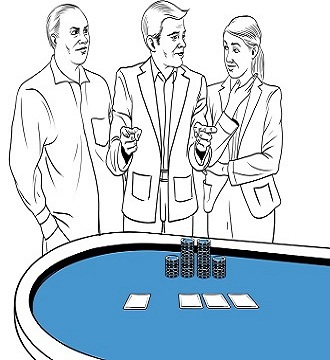
These are some questions to get you thinking about when you’re most likely to be distracted and why. Figuring out the cause of your distraction can be challenging if you’ve never fixed a mental game issue before. Here’s a poker tip for both beginners and advanced players that can help to achieve this: Consider trying an experiment where you force yourself to focus on poker. Remove all potential distractions before you play, and then during the session or tournament write down all the things that you impulsively want to do. For example, if you have an urge to check Instagram or see if someone replied to your text message, take 30 seconds to quickly write down the distraction, what’s going on in the game, and why you think you became distracted.
Sure, writing like this is a distraction from the game, but you’re doing it as part of a poker strategy plan to gather data about your patterns of distraction. Do it for a week, or the equivalent if you play infrequently, and then review the data to see what’s most likely to distract you and why. Once you’ve figured out why, come up with some corrections. Here are some suggestions:
Get in the Poker Zone and Stay There
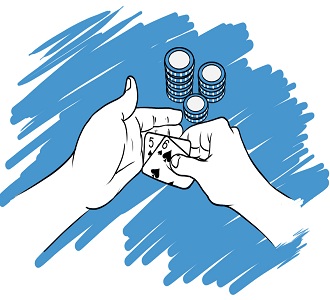
- If it happens when you’re tired, push yourself like I suggested in the last chapter of this poker strategy guide, to focus for even just 5 to 10 minutes more.
- If you need to constantly stay in touch with family and friends, or other poker players, try telling them before you start playing that that you’ll be unavailable and for how long. If that doesn’t keep you from wanting to stay in touch, examine why you need to constantly know what’s going on.
- If poker is boring and distractions keep you interested, find ways to be more challenged by the game. There’s always something new to learn, outside of the many poker strategy articles out there, even if that means learning more details about how your opponents think and play the game.
- If losing is the cause, then you have a problem with losing and not focus. Correcting the pain of losing is the only way to fix your focus.
Block Out All the Noise
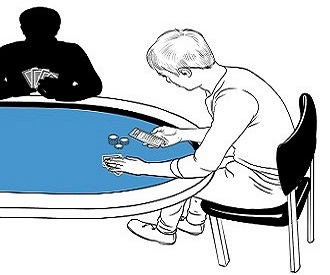
We live in an age that presents an endless supply of easy distractions. Whatever the reason you become distracted in poker, take removing them from your game seriously. This poker tip will help you learn a valuable and rare skill that will not only help play better poker, it’ll allow you to have more success in life.
Jared Tendler, MS, LMHC is licensed therapist specializing in sport psychology and is the leading authority on the mental game in poker. Throughout his nearly 10 years coaching poker players he has worked with over 500 players hailing from over 45 countries, including many of the top players in the world. He is also the author of two best-selling books on the subject, The Mental Game of Poker 1 and Poker 2.
